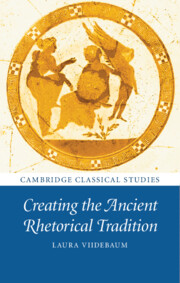Creating the Ancient Rhetorical Tradition
This book explores the history of rhetorical thought and examines the gradual association of different aspects of rhetorical theory with two outstanding fourth-century bce writers: Lysias and Isocrates. It highlights the parallel development of the rhetorical tradition that became understood, on the one hand, as a domain of style and persuasive speech, associated with the figure of Lysias, and, on the other, as a kind of philosophical enterprise which makes significant demands on moral and political education in antiquity, epitomized in the work of Isocrates. There are two pivotal moments in which the two rhetoricians were pitted against each other as representatives of different modes of cultural discourse: Athens in the fourth century bce, as memorably portrayed in Plato’s Phaedrus, and Rome in the first century bce when Dionysius of Halicarnassus proposes to create from the united Lysianic and Isocratean rhetoric the foundation for the ancient rhetorical tradition.
Laura Viidebaum is an assistant professor in Classics at New York University. Her research focuses primarily on ancient rhetoric and ancient literary criticism, but she also has a long-standing interest in the way these fields relate to ongoing philosophical discussions. Recently, she has received a distinguished Humboldt fellowship to launch her new project on Aristotle’s Rhetoric.

